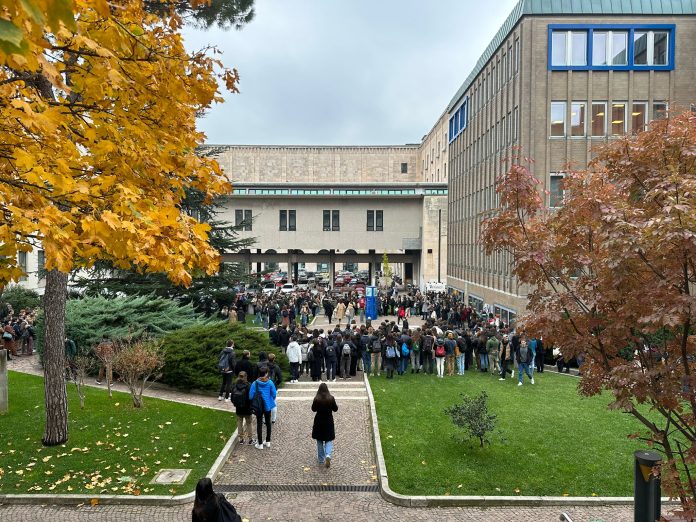by InTrieste
On Wednesday, the Italian Senate unanimously approved new measures aimed at addressing violence against women and reinforcing existing regulations.
The bill, which received unanimous support in the lower house two weeks ago, arises amidst heightened public outcry in Italy following the tragic murder of 22-year-old student Giulia Cecchettin.
The newly endorsed measures will amend the Codice Rosso law, prioritizing cases of domestic and gender-based violence to enhance the effectiveness of the legislation.
The revised law places a greater emphasis on prevention and warnings, introduces new restraining orders, enhances surveillance on individuals convicted of domestic violence, prioritizes court cases involving violence against women, and strengthens the emergency gender violence hotline 1522.
Italian Minister for Family, Birth Rates, and Equal Opportunities, Eugenia Roccella, who presented the bill, emphasized that the new law “in many cases can make the difference between life and death.”
Additional measures include a campaign in schools addressing sexism, machismo, and psychological and physical violence against women. Education Minister Giuseppe Valditara stated that it is “absolutely unacceptable that women have to endure harassment, humiliation, and violence on a daily basis.”
These developments coincide with nationwide demonstrations in response to the murder of engineering student Cecchettin, whose body was discovered on Saturday in a ravine in Friuli Venezia Giulia.
In Friuli Venezia Giulia, in a continuous upward trend, funding secured by the Region for the fight against gender-based violence has increased significantly. From over 174,000 euros in 2021, the allocation has risen to 228,000 euros this year. The FVG region is supporting special initiatives that organize conferences, workshops, installations, performances, and awareness campaigns, particularly in conjunction with the International Day for the Elimination of Violence against Women on November 25. Women’s associations managing anti-violence centers within the national network “Donne in rete contro la violenza” (Women in Network Against Violence – Dire) and third-sector organizations actively participate.
“When addressing gender-based violence, prevention is undoubtedly a fundamental tool. However, it is a mistake to consider it the sole responsibility and confine it to the education system alone. Each individual should feel implicated in conveying respect and freedom to young people, but not exclusively. Equally misguided is absolving oneself by pinpointing a presumed patriarchy as the sole root cause of violence against women,” emphasized Alessia Rosolen, regional councilor for education.





























